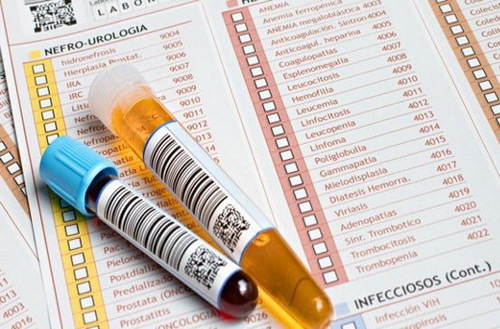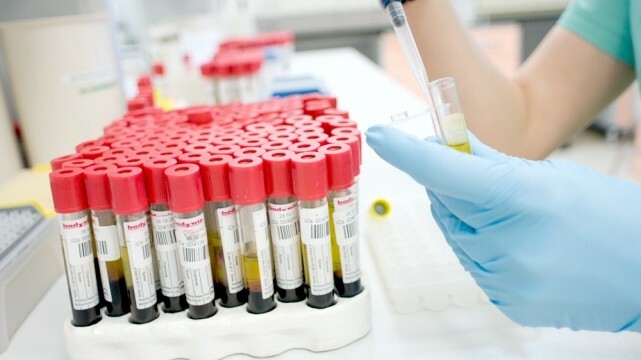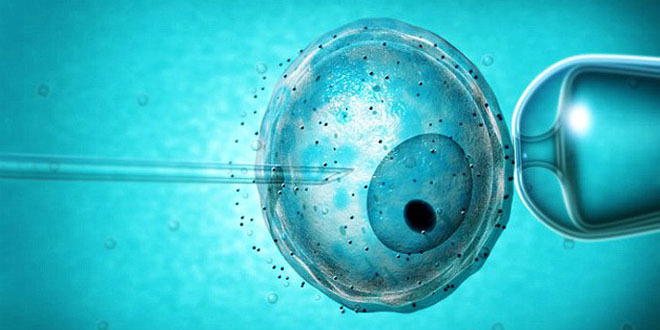In modern gynecology, an ectopic( atypical) pregnancy is characterized by fixing a fertilized egg outside the uterus, usually inside the fallopian tube, in the ovaries or on its neck. In atypical, exceptional cases, the embryo is attached to other non-genital organs, up to the outer membrane of the liver. However, the initial signs of conception, as a rule, do not differ from the standard course of pregnancy. A representative of the fair sex, stops menstruation, there is toxicosis and an increase in mammary glands. The test for the presence of human chorionic gonadotropin( hCG) and the change in its concentration is positive, only the level of hCG in ectopic pregnancy is lower than in the usual course of embryo development.
Analysis of hCG in ectopic pregnancy can prevent deformation or rupture of the walls of the fallopian tube. After all, they are the most frequent threat that occurs four to five weeks after atypical conception. This is caused by an increase in the size of the embryo, which grows and stretches the tubular walls, as a result of which their rupture may occur. To diagnose the presence of an abnormal arrangement of the fetus, it is necessary to determine the level of the chorionic gonadotropin, which in professional slang is called the "pregnancy hormone".
Method for testing the level of chorionic gonadotropin

Today in gynecology, several methods of testing are used to determine the level of hCG in ectopic pregnancy. The express analysis is carried out using a test strip that reacts to the content of the pregnancy hormone in the urine. Usually, it is resorted to in the absence or delay of planned menstruation.
Currently there are two types of this diagnostic tool - simple and special. The first one allows to determine the presence of the fact of conception, and the second with a certain accuracy makes it possible to control the concentration of chorionic gonadotropin.
The table and color scale offered for the test have all the necessary data for an approximate determination of the level of the hormone. However, the results obtained are rather approximate, do not allow to determine the actual content of hCG in ectopic pregnancy and are the reason for sending a woman to a more detailed examination.
The use of this test method using the second type of test strips is justified, since it allows to determine the probability of atypical conception in the early stages, which makes it possible in a timely manner to take all measures to neutralize the consequences of pathology.
A more accurate result in the determination of hCG in ectopic pregnancy gives a special blood test. It is carried out by specialists of the biological laboratory of the gynecological clinic. At the same time, the reliability of the analysis is ensured by the delivery of blood samples on an empty stomach.
Usually, the level of hCG with ectopic pregnancy is lower than with normal embryo development. An underestimated indicator is an occasion for a more in-depth examination with the use of modern medical diagnostic tools. However, the results of any analyzes are purely individual and depend on:
- of the patient's general physiological state,
- of the number of conceptions( including interrupted) and past delivery,
- of the patient's age,
- of the presence of various types of chronic diseases.

In order to more accurately and quickly determine the presence of pathology at the disposal of physicians, there are special multifactorial tables that show the typical content of hCG in ectopic pregnancy, both in the weeks of conception and in days after the last menstrual period.
Table of the level of hCG in ectopic pregnancy( mU / ml = mUI / ml)

Using the data of the first column of the table, we can roughly determine the term of conception( column 2), and on them - the range of hCG indicators in ectopic pregnancy. There are other tables, which show the normal values of the chorionic gonadotropin, characteristic for normal embryo development.
Features of chorionic gonadotropin analysis
Despite the high accuracy in determining the likelihood of abnormal fetal development, blood test results are also indicative. No doctor gynecologist will give an unambiguous answer to the question of what hCG in ectopic pregnancy will indicate the presence of pathology. For the final diagnosis, ultrasound( ultrasound) should be performed, which makes it possible to detect the presence of trophoblast - the cell mass of the embryo outside the uterus.
Modern, well-developed method of biological blood analysis for the presence and concentration of hCG allows to determine the presence of pathology. In this case, there are cases when its reduced indications did not indicate a pathological implantation of the embryo, but allowed to prevent miscarriage. It is the lowered level of chorionic gonadotropin that can indicate a high probability of a miscarriage.
It should be noted that for a few categories of women, the accompanying of conception by lowering hCG is a typical phenomenon and depends not only on individual physiological characteristics, but also on hereditary factors. Therefore, the final diagnosis is made with a positive analysis of hCG in combination with other signs. About atypical conception can be indicated by the presence of bloody discharge in place of full-time menstruation. An indicator of the pathology is the occurrence of pulling pains in the lower part of the abdominal part. If any of these signs appear, a woman should immediately contact a gynecologist who will prescribe the necessary method of examination.
Although the disease in question is not fatal, it is usually one of the causes of the consequences that make it impossible to conceive and develop the fetus normally. According to medical statistics, up to 25.0% of women after ectopic pathology are not capable of normal conception and bearing of a child. The severity of the consequences depends on how timely the diagnosis was made, the presence of pathology and how timely all the measures necessary for treatment were taken.
Conclusion
Conducting a test for determining the level( concentration) of the hormone of chorionic gonadotropin should be used not only for suspected atypical pregnancy. The dynamics of changes in the concentration of chorionic gonadotropin in the blood can detect pathological development of the fetus at any time. At the same time, according to its dynamics, one can judge the nature of the disease. If the ectopic attachment of the embryo the level of the hormone is initially below the norm, then with the threat of miscarriage, an increase in its normal concentration is suspended. In the case of a low concentration of chorionic gonadotropin in the last stages of fetal development, this may indicate placental insufficiency and a high probability of premature birth. If the fears are not confirmed and the test shows that there is no pathology, this will be a pleasant factor for a woman in whose life positive emotions play no small importance.



